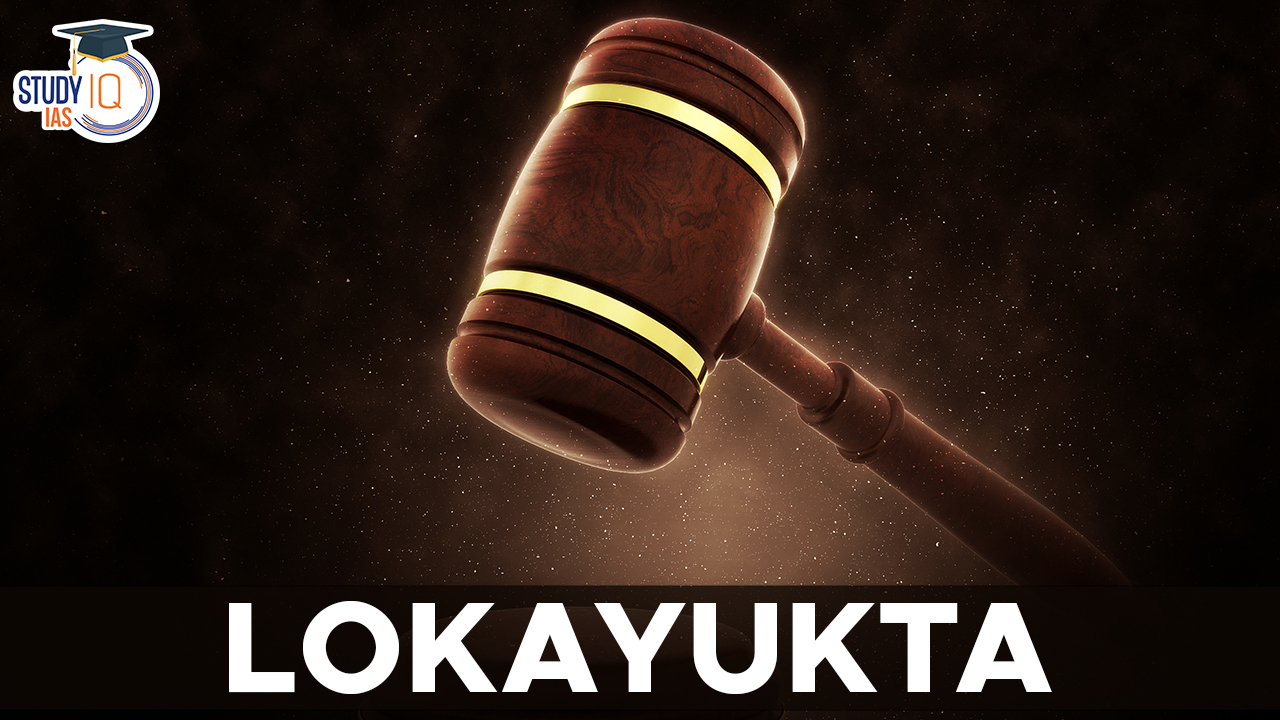Table of Contents
Lokayukta
The Lokayukta has the power to investigate the actions of public servants if the state government refers the case to them. This helps prevent public servants from misusing their authority for personal gain. One of the Lokayukta’s main jobs is to resolve public complaints quickly and effectively, which helps build trust between the public and the government. They do not accept complaints if there are other ways to solve the issue, allowing them to focus on problems without other solutions. The Lokayukta uses the same investigation methods as the Lokpal to ensure consistency in handling corruption cases. Together with the Uplokayukta, the Lokayukta must present a report of their activities to the Governor, promoting accountability and transparency in their work.
The Lokayukta is an important part of Indian Polity which is an important subject in UPSC Syllabus. Students can also go for UPSC Mock Test to get more accuracy in their preparations.
History of Lokayukta
The Lokayukta is inspired by the Scandinavian Ombudsmen, which were created to protect the public from poor administration, with Sweden being the first to establish this system in 1809.
The first Administrative Reforms Commission (ARC) proposed setting up two bodies called “Lokpal” and “Lokayukta” to tackle public issues. The Second Administrative Reforms Commission (SARC) recommended that the Lokayukta be a multi-member body, led by a judicial member, with other qualified individuals included. This initiative was part of the Indian government’s effort to reduce corruption in administration.
Lokayukta Started in:
The Lokayukta system began in India in 1971, with Maharashtra being the first state to set it up through The Maharashtra Lokayukta and Upa-Lokayuktas Act. The Lokpal and Lokayukta Act of 2013 was created to establish Lokayuktas in states, allowing them to investigate claims of corruption against certain public officials and related issues.
Lokayuktas Act, 2013
The Lokpal and Lokayukta Act, 2013, also referred to as the Lokpal Act, aims to appoint a Lokpal for the Union and a Lokayukta for each state to look into allegations of corruption or wasteful spending against public servants.
The Act is applicable to “public servants” both inside and outside of India, and it covers the entire nation. The Lokayukta will serve as a watchdog in our democratic system, supporting citizens in reporting cases of corruption, along with the Income Tax Department and the Anti-Corruption Bureau. The patterns of the organisation and the function of Lokayuktas in various states varied noticeably.
Lokayukta Organizational Structure
The Lokayukta structures vary across states. Some states, like Rajasthan, Karnataka, Andhra Pradesh, and Maharashtra, have both a Lokayukta and an Up-Lokayukta. Others, like Uttar Pradesh and Himachal Pradesh, only have a Lokayukta. Jammu & Kashmir does not have either. For example, the Madhya Pradesh Lokayukta has specific operational wings.
- Administrative and Enquiry Section
- Legal Section
- Special Police Establishment (SPE)
- Technical Cell
- District Vigilance Committees
Lokayukta Appointment
The Lokayukta and Up-Lokayukta are independent organizations set up to investigate the actions of public employees. They operate separately from the legislative and executive branches and follow the same standards as Supreme Court and High Court judges. They are appointed by the Governor. When appointing, the governor in most states consults both the chief justice of the state high court and the leader of the Opposition in the state legislative assembly.
Also Read: Lokpal
Lokayukta Qualification and Term of office
In most states, the Lokayukta serves a term of 5 years or until they turn 65, whichever comes first. They cannot be reappointed for a second term.
The Lokayukta must have judicial training in the states of Uttar Pradesh, Himachal Pradesh, Andhra Pradesh, Gujarat, and Odisha. But there are no statutory requirements in the states of Bihar, Maharashtra, or Rajasthan. The Lokayukta’s tenure of office in the majority of states is five years or 70 years old (Himachal Pradesh), whichever comes first, and they are not eligible for reappointment.
Lokayukta Jurisdiction
When it comes to the Lokayukta’s jurisdiction, there is no consistency. For instance, in Himachal Pradesh, Andhra Pradesh, Madhya Pradesh, and Gujarat, the Chief Minister is subject to the Lokayukta’s authority, but not in Maharashtra, Uttar Pradesh, Rajasthan, or Bihar.
Ministers and higher government officials are subject to the Lokayukta’s jurisdiction in the majority of states. In Maharashtra, there are also current and former civil servants. The state legislature is the Lokayukta’s boss. Its yearly report is delivered to the legislature, and the House typically accepts its recommendations.
Lokayukta Power
The Lokayukta has the following powers:
- Supervisory Authority: Can oversee and direct inquiries or investigations.
- Search and Seizure: Has the power to search and seize evidence.
- Civil Court Powers: May have some authority similar to that of a civil court.
- Employ State Employees: Can use the services of state government workers.
- Seize Assets: Can temporarily or formally seize assets related to corruption.
- Recommend Actions: Can recommend the transfer or suspension of public servants involved in corruption.
- Protect Records: Can issue instructions to prevent the destruction of evidence during investigations.
- Delegation: Has the ability to delegate tasks to others.
Lokayukta Criticism
The following recommendations were not followed by the Lokpal and Lokayukta Act of 2013. Whistleblower protection was among the Jan Lokpal Bill’s main demands. The Act does not cover whistleblower protection. A unique law will be required for it. There is only one Lokayukta-related section of the Act, and it requires that states approve the Lokayukta Act within a year.
However, there is no information available regarding their make-up, abilities, or other traits. In actuality, states have total discretion over the selection, operation, and conditions of their own Lokayuktas. There are no clauses in the Citizen’s Charter. In order to challenge the Lokayukta, which is unable to conduct its own investigations, there are insufficient processes.
Lokayukta UPSC
The efficiency of the government machinery determines the scope of democracy and growth to a larger extent. People should be able to air their problems through an efficient and effective method of redress in a democracy. People’s democratic aspirations and the administration’s authoritarian approach created conflict. Students can read all the details related to UPSC by visiting the official website of StudyIQ UPSC Online Coaching.


 Electoral System in India 2026: SIR Upda...
Electoral System in India 2026: SIR Upda...
 SLAPP Suits: Meaning, Examples, Impact o...
SLAPP Suits: Meaning, Examples, Impact o...
 Finance Commission of India, Articles an...
Finance Commission of India, Articles an...

























